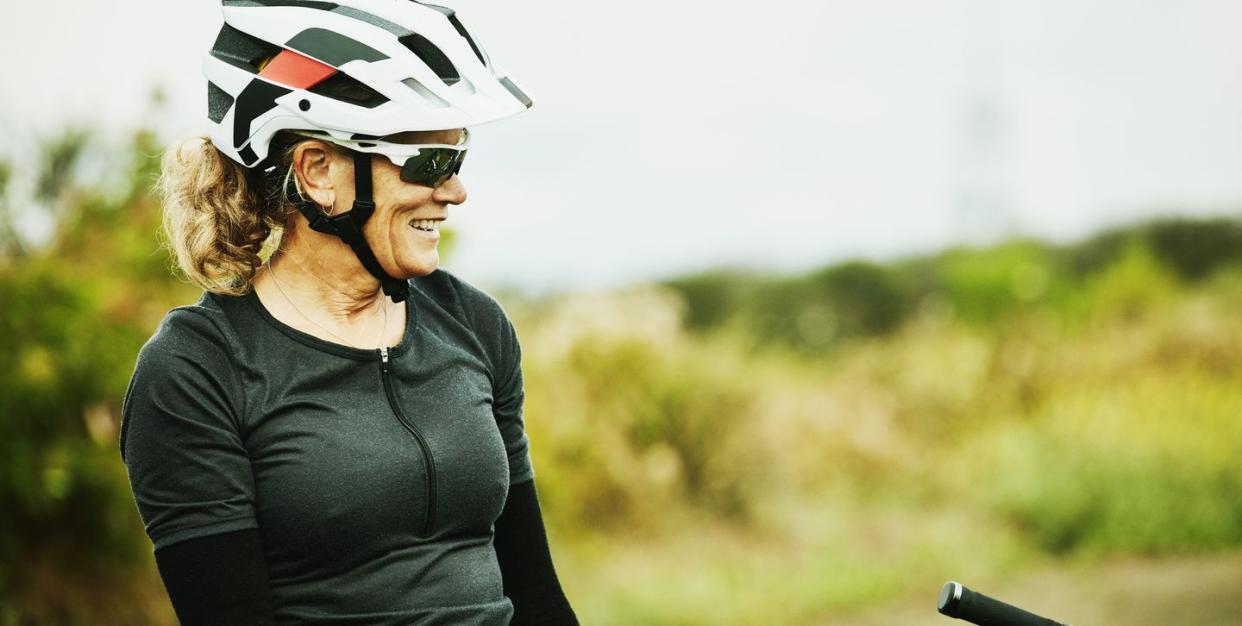Elevated Blood Pressure in Women Can Lead to Heart Issues Down the Road

Women with slightly elevated blood pressure had a doubled risk of heart issues during midlife, according to new research.
Getting your blood pressure checked on a regular basis can prevent this from happening.
If you are diagnosed with slightly elevated (or elevated) blood pressure, getting regular exercise—like cycling!—and eating a balanced diet can help bring these numbers down.
Even if you’re feeling healthy and strong as you hit your 40s, a new study in the European Journal of Preventive Cardiology suggests you should prioritize getting your blood pressure checked—even a mildly elevated reading puts you at much higher risk of heart issues as you age. That’s particularly true for women, researchers found.
Using 16 years of health data for just over 6,000 women and about 6,000 men participating in a Norwegian study, researchers noted that women with slightly elevated blood pressure had a doubled risk of acute coronary syndrome (conditions associated with a sudden, reduced blood flow to the heart) during midlife. That means blood pressure that’s 130 to 139 systolic (the top number) and 80 to 89 diastolic (the bottom number) mmHg (millimeters of mercury).
→ Get Bicycling All Access to stay on top of the latest health news!
That association wasn’t found in men, according to lead study author Ester Kringeland, M.D., in the Department of Clinical Science at the University of Bergen in Norway.
“Our findings probably reflect underlying differences in vascular biology between women and men, especially in small arteries,” she told Bicycling.
Although the study centered on midlife adults, she added that young women, on average, have lower blood pressure than men. Since the threshold for high blood pressure is the same in both sexes, that means women need to have a relatively larger increase in blood pressure before being diagnosed with a blood pressure issue.
“In other words, young women with high blood pressure may have more advanced disease compared to hypertensive young men,” Kringeland said.
The solution? Get checked.
She said all adult women, regardless of age, should be aware of their blood pressure numbers. Usually an assessment every five years is sufficient, but that should be every one to two years if you have other risk factors for heart disease, such as obesity, diabetes, autoimmune disorders, or pregnancy complications. Also, if your parents have high blood pressure, that’s an additional nudge toward staying on top of your numbers.
If it turns out that your pressure is starting to become slightly elevated—but not enough to be diagnosed as hypertensive—lifestyle changes can help, said Kringeland.
“What’s recommended is to maintain normal body weight, exercise regularly, and have a healthy diet,” she advised. “Also, avoid smoking and excess consumption of alcohol and salt.”
If those shifts don’t work to bring pressure down, she added that your primary care physician may suggest medications that can lower blood pressure.
Most of all, take it seriously, even if you feel fine. Kringeland added that previous research has suggested blood pressure is a stronger risk factor for heart disease in women than it is for men—so knowing your numbers now could be a heart saver as you age.
You Might Also Like